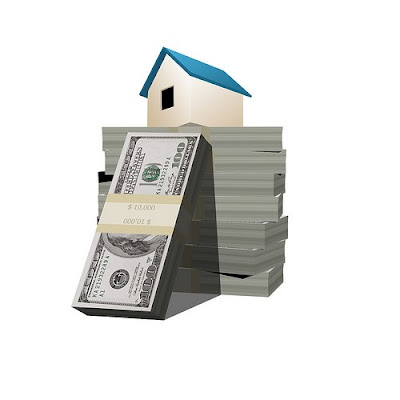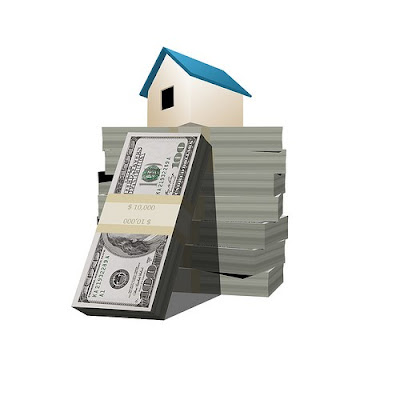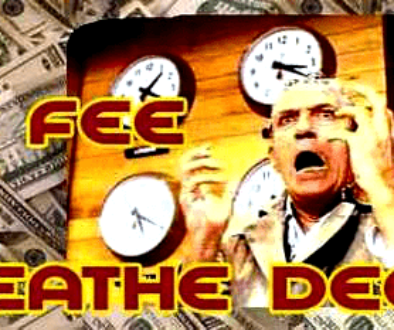Should I Pay Off My House?
For those of us who own a home or who plan to, the question may come up, should I pay off my house? Each month we are paying the mortgage hoping in 15 or 30 years we will be done and the house will be ours. Hooray! However, there is another view and I want to broach the subject here in this blog post because I have been convinced that it isn’t the best approach to pay off your house.
Let me start by saying, before 2013 I had no view to the contrary that I should not pay off my house. In conventional wisdom fashion, I just was going along with the tried and true of working towards paying off your house. In fact, I started down a track to pay off my house sooner by making extra principal payments. That was all I knew at the time and I wanted to get out of all debt, but a book I read by Douglas Andrew, named “Last Chance Millionaire: It‘s Not Too Late to Become Wealthy” convinced me otherwise.
By the time I was reading this book, I had 3 properties, of which 1 was my homestead and the other 2 were single family rental houses. You might imagine that I would consider would it be wise for me to pay these off? Personally, my answer to the question now would be no, I should not pay off any of my properties. In fact, leave them as leveraged to the hilt as possible. If you want to go more in depth about concepts in the book, I would encourage you to get a copy to read either at your local library or online at The Last Chance Millionaire: It’s Not Too Late to Become Wealthy. His convincing points for me centered around 2 things:
- The house itself is already an asset as is your capital and the opportunity cost of investing anymore then absolutely necessary of our capital into our house where it doesn’t earn a rate of return is a missed opportunity. The goal was to keep these two as separate as possible from one another.
- The ability to invest the equity we keep separate from our house in a safe instrument like a whole life insurance policy that gives a rate of return over time that compounds and outpace the simple interest mortgage amortization
Is Earning 0% What You Want?
I don’t know about you, but I want and plan to retire one day, hopefully sooner than later, from this rat race so I understand the importance of earning a rate of return on as many of those dollars we will earn in this lifetime. I realize that in order for me to remain middle class or alleviate higher is to ensure that I am efficiently utilizing my capital. He points out in the book, if you have paid off your house, you have effectively combined the two assets we mentioned above were stand alone assets in and of themselves. Now you have a property in which ‘x’ amount of equity is in the house earning zilch, zero, nada! Since a house will be one of the biggest purchases in our life, I wouldn’t want to get how we manage it wrong! Also, a house is just for utility anyway, right? So do we have to have all our money in it to represent ownership or can we use a small percentage of our money and OPM(other people money) to leverage it for as long as we live and continue to get the tax deductions for mortgage interest for as long as that deduction is in place?
What May Be Lurking In Half Truths
Whole Life Insurance as Safe Haven for Equity
This is the type of outcome I am afraid of happening to more poor and middle class people and to avoid getting caught in this situation do not pay off your house and take the would be equity and invest it in an asset like whole life insurance in a mutual company that earns a relatively safe rate of return compounding year over year. I know it runs contrary to conventional wisdom and what we‘ve learned in the past, but in my opinion, it’s actually pretty sound advice. If you can get a life insurance policy to help make this work, then I would suggest to do it. I happened to already have a life insurance policy that I could use for this purpose. Although I couldn’t do all of what he suggested for my homestead, I did do cash out refinance for my single family rentals and I put the proceeds into my New York Life custom whole life policy. For investment property, the bank will only finance 75% of appraised market value, but as far as that goes, I don’t keep any other equity in my house that I can refinance out to put those dollars to work. You may or may not be able to get a life insurance policy depending on your age, health, and cost; nevertheless, it doesn‘t hurt to try and see your options by speaking with a life insurance agent. If this avenue is shut off to you, you still are not without options, one of which I will explain in future blog post, Investing In Rental Real Estate Cash Out Refinance Potential – Part VI of a series.
It is absolutely pertinent that you also adhere to the advice to invest the equity and not spend it on some depreciating asset like a car. That is not at all what I am suggesting nor the book’s author suggest. The point is to earn a rate of return and a liability doesn’t do that. The younger and healthier you are, the easier it will be to implement this strategy. Nevertheless, we should all be continually looking at how much equity we have in our home that can be refinanced with “cash out” option and putting that money to work. Anytime you can make a return greater than zero, time and compounding is going to make the difference, for those of us who aren’t rich, to be able to keep the lifestyle to which we are accustomed.
In Closing
Sometimes we just do the tried and true without questioning it and it takes a person with an idea contrary to get you to think at least about other possibilities you hadn’t thought of. Hopefully, this post jolts your brain to think about this subject again and question are you potentially missing an opportunity to put your dollars to work and/or you leaving yourself open to being a victim concerning mismanagement of the equity in your home. In either case, make changes were necessary to ensure you don’t lose!
 Please provide feedback or questions pertaining to this blog post by leaving a comment below. Also please be sure to share this content with your friends and family. I thank you in advance.
Please provide feedback or questions pertaining to this blog post by leaving a comment below. Also please be sure to share this content with your friends and family. I thank you in advance.
Also, next time you think to shop at Walmart online, how about clicking through on the banner ad at the bottom of my blog. It will be appreciated, but also check out my blog post
Loyal3 10 Stock Plan. If you are spending money in Walmart, you should be owning it too!



